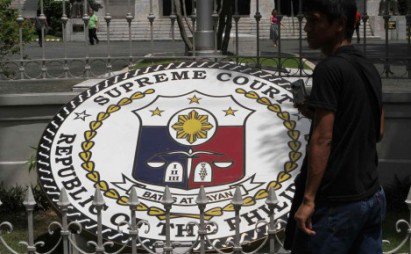MANILA, Philippines — Human rights lawyers are worried reports of “widening cracks” in the Supreme Court could further erode “the residual faith of the people in already unresponsive institutions whose roles are being wilted away, willingly or unwillingly, to de facto authoritarianism.”
Reacting to multiple news reports that a number of justices asked Sereno to go on indefinite leave, the National Union of Peoples’ Lawyers said: “If true, this exposes the widening cracks in the institution which impact on the independence of the Judiciary, the Court’s very integrity, and ironically, on respect for the Constitution apparently because of political designs, personal considerations, or convenient acquiescence to the dark side.”
At the same time, the group called the move illegal.
“We submit that the Justices are bereft of any basis in law where they could prevent any of their colleagues from discharging their oath of office under the guise of an official leave, much less declaring the post of a sitting justice vacant,” it said.
The news reports said Sereno initially acquiesced to her colleague’s demands, supposedly saying she would go on indefinite leave from Wednesday, March 1. However, her spokesman later announced that she was taking a “wellness leave” ahead of its original schedule to prepare for her probable impeachment trial by the Senate.
But the NUPL said by asking Sereno to go on leave, “the concerned Justices have prejudged the impeachment proceedings that is yet to be concluded at the House of Representatives or of a possible trial in the Senate.”
“Worse, the said Justices have practically impeached their own colleague, instead of letting the process take its course in accordance with the Constitution they swore to uphold and to stand as supposed symbols of law and justice,” it added.
“The losing party here is not the Chief Justice nor any Justice of the Court. It is also not the Court or the entire judicial system,” the NUPL said. “It is the residual faith of the people in already unresponsive institutions whose roles are being wilted away, willingly or unwillingly, to de facto authoritarianism.”









